List of 5 Decentralized Computing Tools (2024)
 Spheron Network
Spheron Network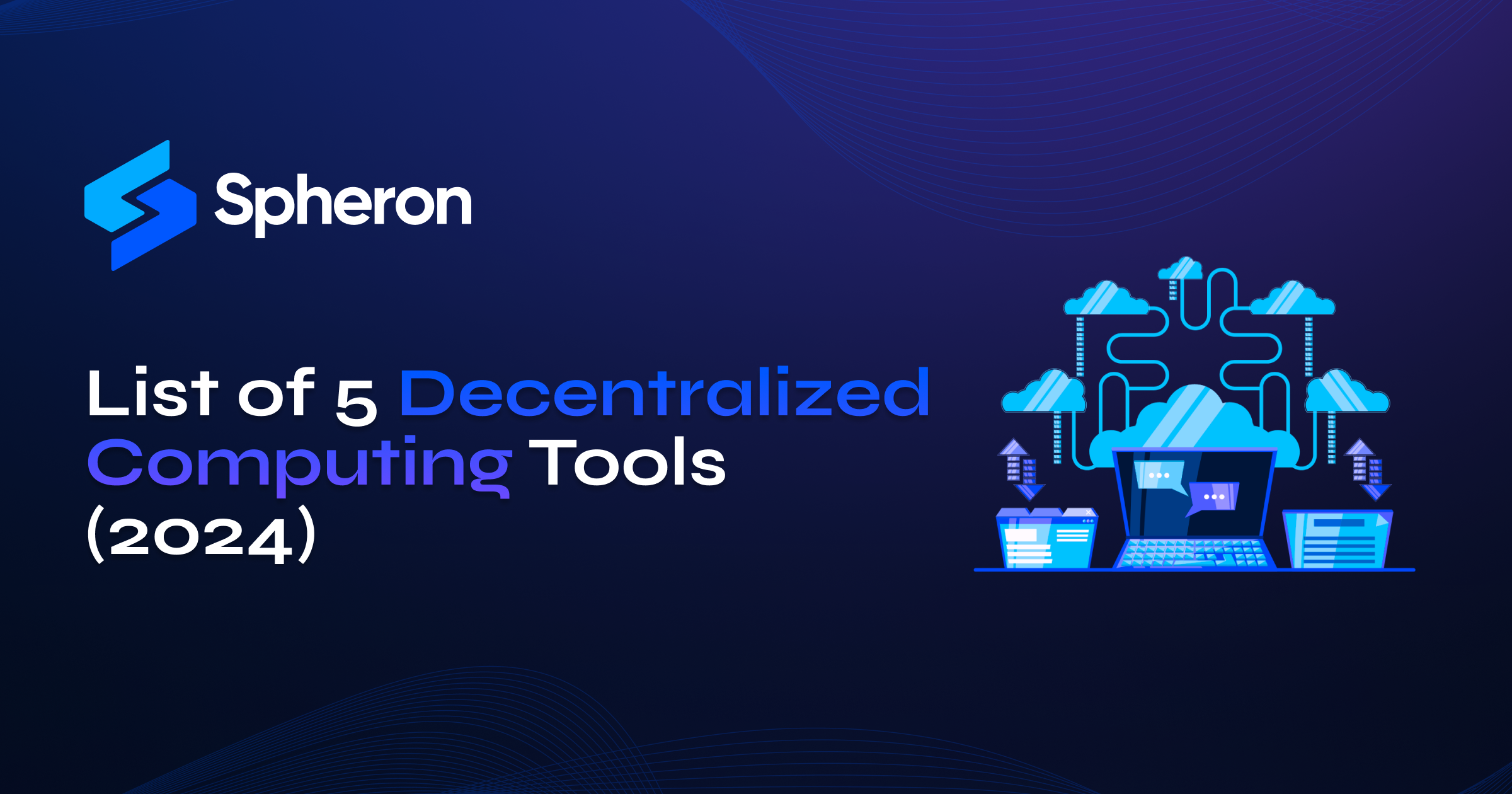
The increasing digitization of the world, particularly driven by the demand for processing power and computing resources, has become more pronounced, especially with the rise of remote work after the COVID-19 pandemic.
Companies and individuals are turning to cloud computing services to comply with social distancing measures, reduce the maintenance of offices, and maintain productivity. However, traditional cloud services have security vulnerabilities and high costs due to market concentration among providers like Amazon, Google, Microsoft, and Alibaba.
To address these issues, decentralized or peer-to-peer cloud computing models have emerged. These solutions use nodal blockchain-based networks to enhance security and reduce censorship. Despite sharing a common ideology, these solutions differ in their approaches. In this article, we will explore the leading decentralized computing initiatives, examining their distinct features, their benefits, and how they advance the cause of accessible computing resources in today's digital age.
1. Akash Network
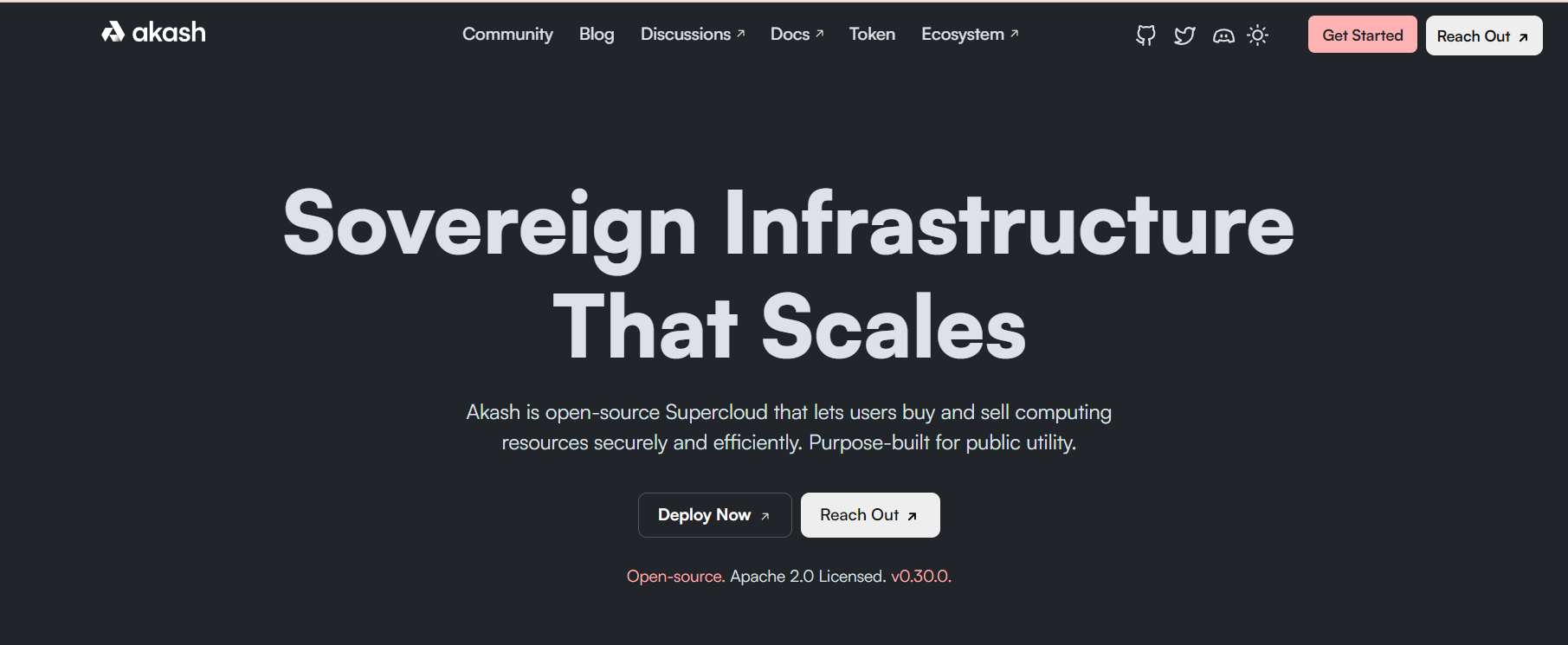
Greg Osuri founded Akash Network, an open-source, decentralized cloud computing platform. Known as the “Airbnb for cloud computing,” Akash is an open Supercloud network that makes it easy to scale and access services around the world rapidly. It uses a "reverse auction" system, where customers submit their desired price and providers compete for the business. According to Akash This often results in prices up to 85% lower than other cloud systems.
Akash is owned and managed by its community. It is a free public service, and the source code that powers it is available to everyone. It is built on dependable technologies like Kubernetes and Cosmos, and the community oversees all aspects of Akash — including decisions about what new features should be implemented.
2. Spheron Network

Spheron Network is a decentralized computing platform that strives for fairness, making distributed resources accessible to all. Spheron Compute presents a robust and cost-effective alternative to centralized cloud services, priced at just one-third of the traditional cost. The goal is to democratize public cloud access, offering a more sustainable model for computing. The Spheron platform allows organizations and developers to deploy, run, and scale based on their needs, free from the limitations of centralized cloud environments.
Spheron satisfies compute requirements: Private images, Auto scale instance, Scale on demand, Real-time instance metrics, Faster GPUs, Free Bandwidths, Terraform Providers and SDKs, Instance health checks, activity, shell access and more. Spheron provides add-on storage solutions for long-term data storage and edge bandwidth acceleration through its global CDN. With Spheron, you can easily set up your nodes in just a few minutes and enjoy low maintenance and operations costs and a great developer experience.
This results in significant customer benefits, simplifying access to a wider range of powerful computing and distributed resources at the edge enhancing availability, proximity, and cost efficiency.
3. DeNet Storage
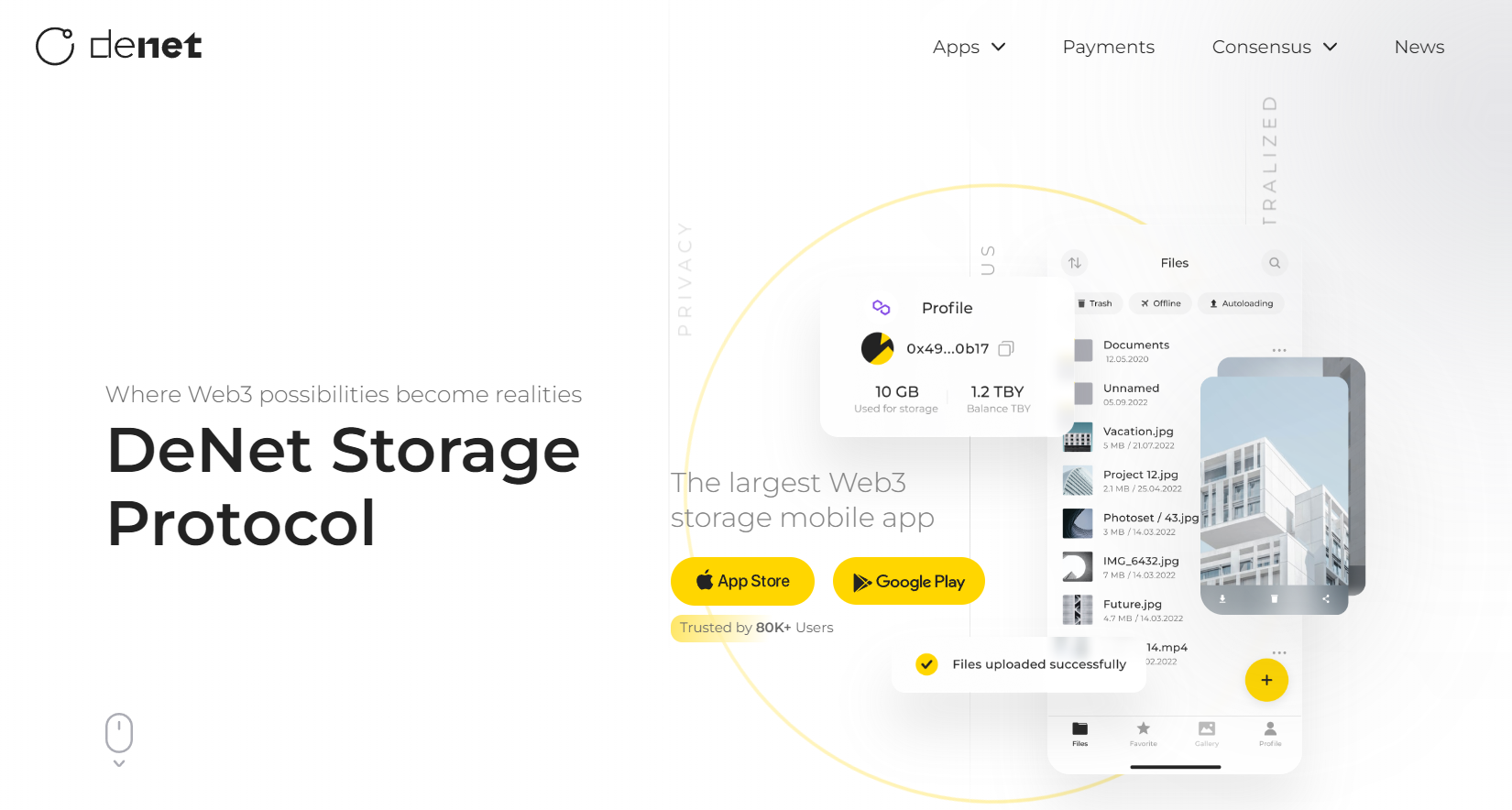
Launched in 2017, DeNet is a decentralized storage protocol allowing the utilization of global spare storage, thereby eliminating centralized data centers. Built on blockchain and Web3 principles, it guarantees unmatched file security; files are fragmented, encrypted, and can only be decrypted by the owner. Users enjoy enhanced privacy, as personal data isn't required, and files are stored in a resilient, decentralized network.
4. Media Network
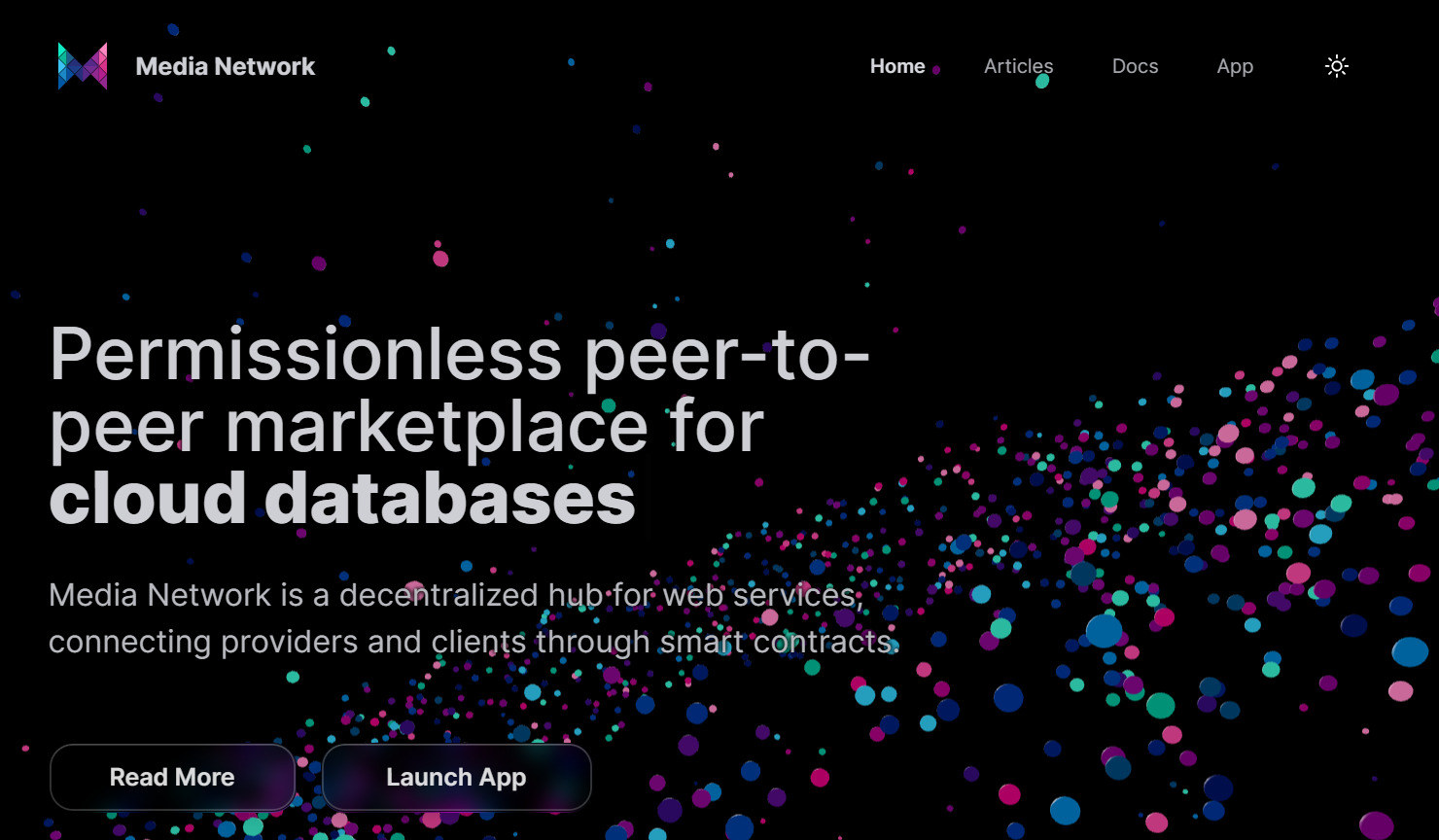
Media Network is a content delivery network that hopes to provide a marketplace for decentralized, peer-to-peer bandwidth. Users can utilize Media Networks services to hire bandwidth-on-demand from a network of decentralized providers. Developers can earn $MEDIA rewards for contributing their bandwidth to the network. The protocol allows network participants to serve content without introducing trust assumptions or pre-authentication requirements.
5. ChainJet
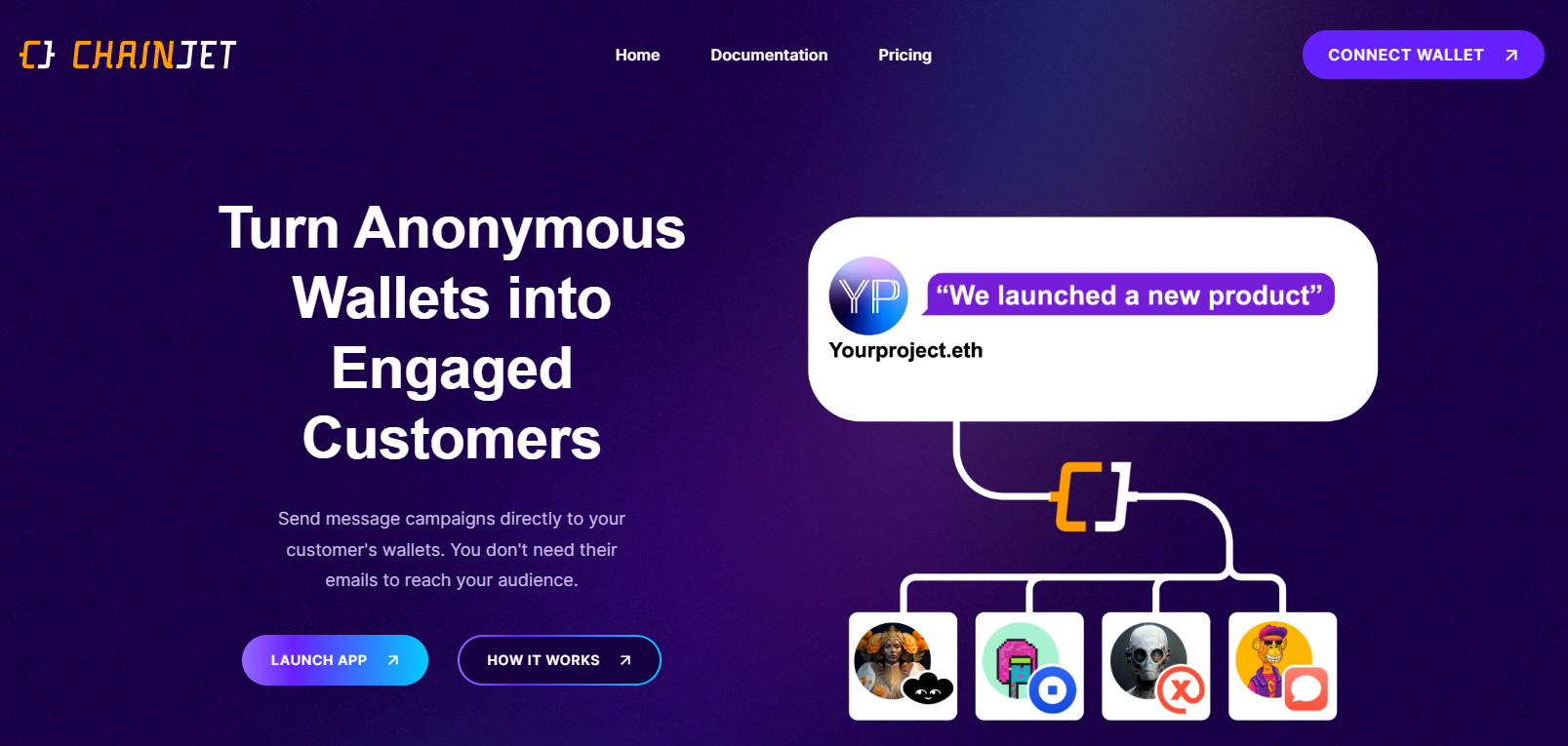
ChainJet provides an extensive collection of well-tested automation modules for web3 protocols, dapps, and developer tools. Users can utilize this collection of automation modules to reduce the time it takes for them to do certain repetitive processes or workflows. Developers can create their own modules and add them to the collection for other users to take advantage of. ChainJet has 8 blockchains supported and integrates with hundreds of population dapps and web3 protocols.
Conclusion
Decentralized cloud computing platforms such as Akash Network, Spheron Network, DeNet Storage, Media Network, and ChainJet offer promising alternatives to traditional centralized cloud services. By leveraging blockchain technology and nodal networking, these platforms provide increased security, reduced costs, and greater accessibility to computing resources.
These decentralized computing initiatives not only address the concerns of security, cost, and accessibility but also promote the values of transparency, community governance, and sustainability. As the world increasingly relies on cloud computing, decentralized solutions are poised to play a critical role in shaping the future of computing resources.
Subscribe to my newsletter
Read articles from Spheron Network directly inside your inbox. Subscribe to the newsletter, and don't miss out.
Written by

Spheron Network
Spheron Network
On-demand DePIN for GPU Compute